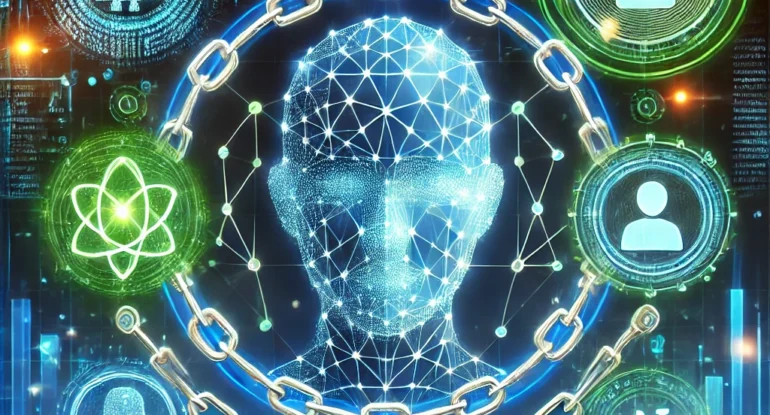Blockchain and Decentralization Will Transform AI by 2025

As AI continues its rapid growth toward a projected $1.3 trillion market value by 2030, blockchain technology and decentralization are set to reshape the AI landscape, empowering developers and users alike. By 2025, these advancements promise to make AI more personalized, inclusive, and secure.
The Limitations of Centralized AI
While generative AI has captured global attention, the centralized nature of its development poses significant challenges. Under the current model, users and developers have little say in the design or deployment of AI tools, leading to issues such as:
- Limited personalization and innovation.
- Concerns about data privacy and security.
- Over-reliance on centralized data sources, which are dwindling in availability.
AI developers face constraints imposed by large organizations controlling access to foundational models. Meanwhile, users grapple with a lack of ownership and transparency, as well as fears over how their sensitive data is used.
The Case for Decentralization
Decentralized systems offer a transformative alternative by involving users and developers in the AI creation process. A decentralized network of GPUs provides an open and transparent foundation, eliminating reliance on centralized compute providers prone to bottlenecks and security risks.
Key Benefits of Decentralization:
- Cost Efficiency: Decentralized computing is more affordable than centralized alternatives.
- Enhanced Security: Decentralized networks mitigate the risk of large-scale database hacks, as seen in incidents like the 2017 Equifax breach.
- Incentivized Participation: Blockchain-enabled monetization rewards users for securely contributing valuable data.
This model fosters a collaborative ecosystem where developers can access high-quality, personalized data to create tailored applications. Users gain greater control over their data and receive economic rewards, building trust and encouraging active participation.
Blockchain’s Role in AI’s Future
Blockchain technology plays a critical role in enabling decentralized AI by ensuring secure data sharing and transparent transactions. With blockchain, users can confidently contribute sensitive information—such as health, financial, or educational data—knowing it is protected and used responsibly.
Applications developed through this model have near-infinite potential. From personalized health advice to intelligent financial planning and virtual stylists, the possibilities for AI agents built on blockchain technology are vast and exciting.
A Vision for 2025 and Beyond
By democratizing AI development, decentralization ensures that all stakeholders—developers, users, and communities—are valued and rewarded. This approach prioritizes privacy, innovation, and collaboration, paving the way for sustainable growth in the AI industry.
As AI becomes more user-friendly and inclusive, we can expect applications that enhance productivity, communication, and social engagement, ushering in a new era of personalized technology.









